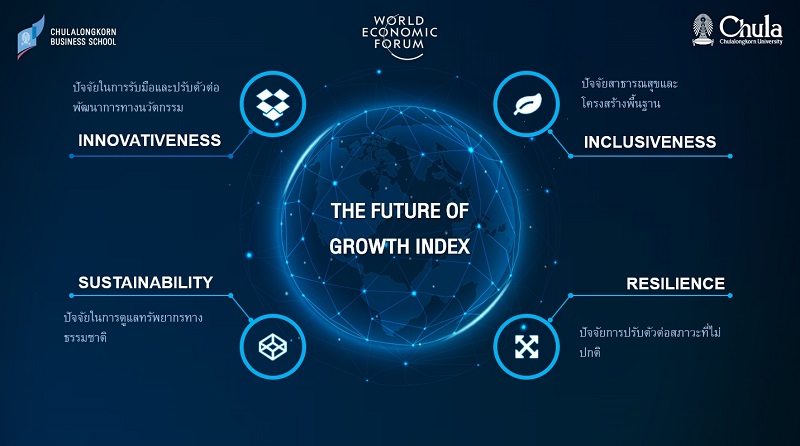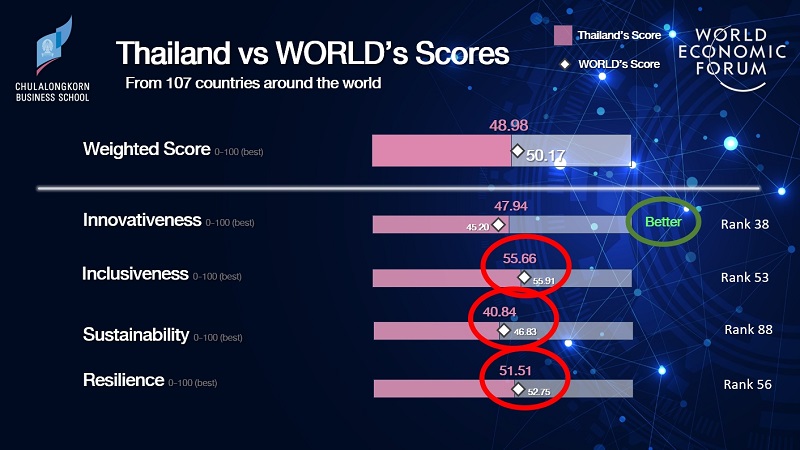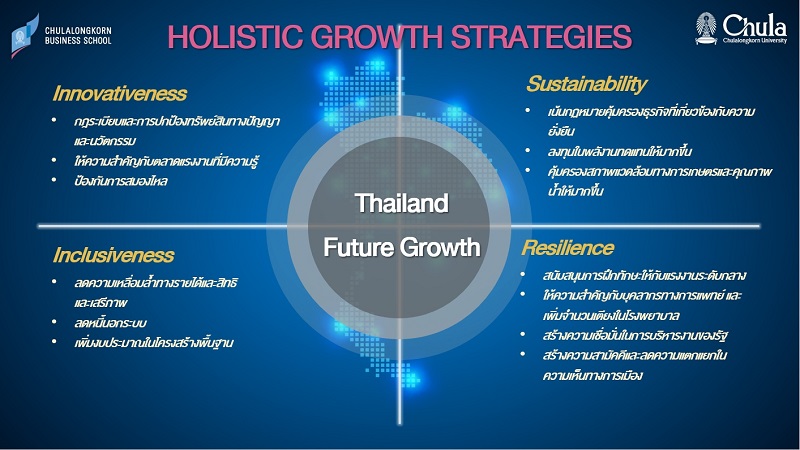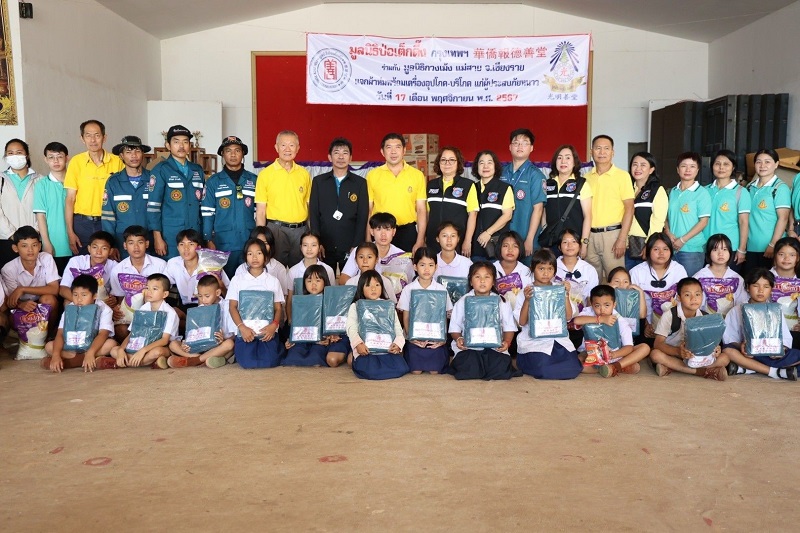Chulalongkorn Business School (CBS) is the sole organization in Thailand that has partnered with the World Economic Forum (WEF) to conduct and publish The Future of Growth Report 2024. The report assesses the growth quality of various countries, revealing that Thailand’s growth is situated in the lower half on a global scale. However, there is a pressing need to accelerate development in sustainability, income equality, and robust legal protection.
Professor Dr Wilert Puriwat, Dean of Chulalongkorn Business School (CBS), Chulalongkorn University affirmed that CBS stands as the exclusive representative in Thailand, collaborating with the World Economic Forum (WEF) for over 5 years. During this period, CBS has been actively engaged in conducting surveys and analyzing the future growth trajectories of countries worldwide, encompassing 107 nations. Globally, Thailand holds the 51st position, with Sweden securing the top spot, followed by Switzerland, Finland, and Denmark. In the Asian region, Japan claims the 11th spot, followed by Korea (12) and Singapore (16). Malaysia holds the 31st position, Vietnam 36th, Indonesia 50th, and Thailand 51st, based on the overall scores in the four pillars assessing the quality of growth.
The approach to considering a country’s growth focuses not only on the speed but also on the quality of growth. This approach helps maintain a balance between efficiency and long-term equality. According to the World Economic Forum, the key factors for a country’s future growth include four pillars: Innovativeness, Inclusiveness, Sustainability, and Resilience.
THE FUTURE OF GROWTH INDEX
Furthermore, the report emphasizes the significant economic slowdown, projected to hit its lowest rate in three decades by the year 2030, amid ongoing economic and geopolitical consequences. Exacerbated by vulnerabilities in climate and social contracts, this economic downturn poses global challenges that hinder progress. It is essential to focus on the high-quality growth of various countries to address these diverse challenges.
Professor Dr Wilert, continued by comparing Thailand’s assessment results with the overall evaluations of countries worldwide and those in the upper-middle-income category. Thailand scored 47.9 in Innovativeness, surpassing the global average of 45.2 and the upper-middle-income economies’ average of 39.3, showcasing Thailand’s excellence in enhancing innovation capabilities. Regarding Inclusiveness, Thailand achieved a score of 55.7, closely aligned with the global average of 55.9 and surpassing the upper-middle-income economies’ average of 54.8. These scores indicate Thailand’s ongoing efforts to foster fair and inclusive growth.
In terms of Sustainability, Thailand scored 40.8, which is lower than the global average of 46.8 and the average of upper-middle-income economies, which is 44.0. This suggests the need for intensified efforts to enhance Thailand’s sustainability.
Regarding to Resilience, reflecting the ability to respond to various impacts, Thailand scored 51.5, slightly lower than the global average of 52.8 but higher than the average of upper-middle-income economies, which is 50.0. This suggests that Thailand possesses a fair ability to respond and recover from crises, indicating a potential area for further development.
Thailand should enhance its capabilities across all pillars. While innovation stands as a strength, there should be a concerted focus on further development in other areas, especially in sustainability, to improve the overall quality of the country’s growth.
THAILAND’S SCORES
Professor Dr. Wilert concluded that this report offers valuable country-level information that supports policymakers in assessing the direction for the development of the country’s growth across the four pillars. These findings will serve as a compass for policy directions and strategies for Thailand to enhance growth in innovation, inclusiveness, sustainability, and resilience.
HOLISTIC GROWTH STRATEGIES
Access the fullreport and find more information at https://www.wilertvision.com/wef









